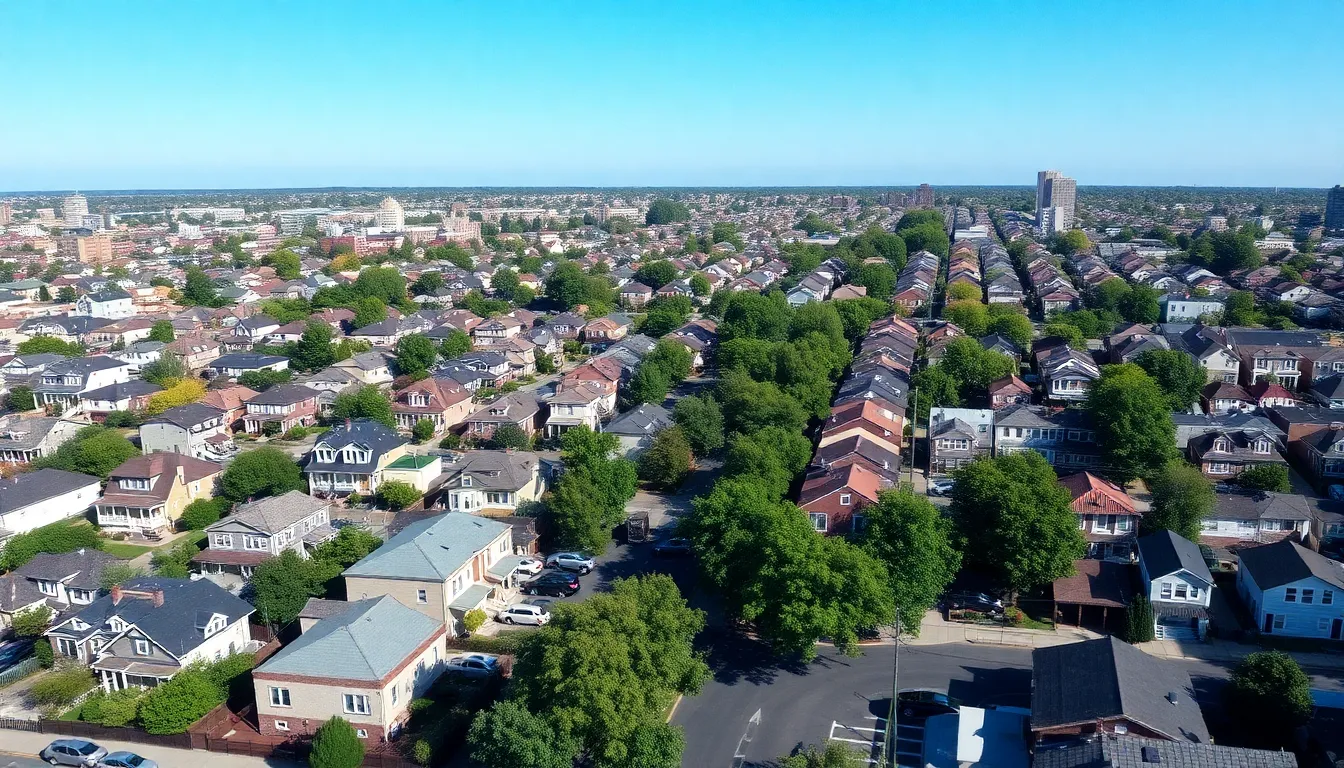Navigating property tax in Queens, NY can feel like trying to find a parking spot in Astoria on a Saturday night—frustrating and overwhelming. With a patchwork of rules and rates that seem to change more often than the weather, it’s easy to feel lost. But fear not! Understanding these taxes doesn’t have to be a headache.
Table of Contents
ToggleUnderstanding Property Tax in Queens NY
Property tax in Queens, NY, affects homeowners and renters alike. It plays a crucial role in funding local services and maintaining community infrastructure.
Definition and Importance
Property tax is a levy based on real estate value. It provides essential funding for schools, public safety, and local government operations. Local municipalities calculate rates to meet budgetary needs. Understanding its significance helps residents appreciate community services supported by these taxes. Each property owner contributes to the overall financial health of their neighborhood.
How Property Tax is Calculated
Property tax calculation involves several factors. Assessors first determine a property’s assessed value, which typically reflects a percentage of its market value. Tax rates, set by local governments, apply to the assessed value. For example, if a property’s assessed value is $300,000 and the tax rate is 1.25 percent, the annual tax due amounts to $3,750. Adjustments for exemptions or deductions may further influence the final tax bill. Keeping abreast of these factors equips homeowners with the knowledge needed to manage their tax liabilities effectively.
Current Property Tax Rates in Queens NY

Property tax rates in Queens vary, impacting homeowners and commercial property owners. Understanding these rates is essential for budgeting and financial planning.
Residential vs. Commercial Rates
Residential property tax rates typically range from 10.1% to 12.1%, depending on the property’s assessed value. Commercial properties often face higher rates, generally around 13.2%. The distinction between these rates reflects the city’s approach to funding services essential for both sectors. Homeowners benefit from exemptions that can lower their tax burden, while commercial entities carry the responsibility for their higher contributions. Local policymakers adjust these rates periodically to address funding needs and economic conditions.
Age and Value Considerations
Age and value significantly influence property tax calculations in Queens. Properties that have undergone recent renovations can see increased assessed values. Older buildings, although sometimes less valuable in the current market, often retain historical significance, impacting their assessments differently. Assessors take both criteria into account when determining tax liabilities. Maintaining updated records of property conditions can help owners manage expected tax changes effectively, ensuring they remain in compliance with local regulations. For many, grasping these factors aids in proactive financial planning related to property taxes.
Property Tax Exemptions in Queens NY
Property tax exemptions play a vital role in alleviating financial burdens for qualifying residents in Queens, NY. Various exemptions are available, designed to benefit different groups.
Types of Exemptions Available
Several property tax exemptions exist in Queens. The School Tax Relief (STAR) exemption offers reductions based on property value, aiding homeowners significantly. Veterans can access the Veterans Exemption, which provides financial relief based on service. For seniors, the Senior Citizen Exemption reduces the taxable value of eligible properties, providing substantial savings. Additionally, the Disability Exemption assists individuals with disabilities, lowering their property tax liability based on assessed value. Each exemption serves a distinct purpose in supporting specific community members.
Eligibility Criteria
Eligibility criteria vary across exemption types in Queens. Homeowners must occupy their residence for the STAR exemption, which requires annual income verification. Veterans must submit proof of service to qualify for the Veterans Exemption. The Senior Citizen Exemption mandates applicants to be 65 or older and reside in the property for a specified duration, along with income limits for eligibility. Individuals seeking the Disability Exemption must demonstrate their disability status, confirming eligibility through official documentation. Understanding these criteria helps residents maximize their potential tax savings.
Common Issues and Challenges
Navigating property tax in Queens presents several challenges for homeowners and renters alike. Understanding these complexities helps residents avoid costly mistakes.
Disputing Property Tax Assessments
Disputing property tax assessments often proves essential for homeowners who feel their property’s value is unfairly high. Gathering supporting documents, such as recent sales data for comparable properties, strengthens a homeowner’s case. Filing an appeal with the New York City Department of Finance entails completing necessary forms within the stipulated timeframe. Residents can seek assistance from local advocacy groups or professionals who specialize in property tax disputes. Knowledge of the appeal process and timelines helps mitigate frustrations and facilitates a smoother resolution.
Handling Delinquent Taxes
Handling delinquent taxes requires attention and timely action from property owners. Ignoring unpaid property taxes can result in penalties or even tax liens. Options for resolving delinquent taxes include payment plans or seeking tax relief programs offered by the city. Results from timely engagement with tax authorities can help prevent escalation and protect property ownership. Staying informed about the available resources empowers residents to tackle these challenges effectively and maintain their financial health.
Navigating property tax in Queens can be challenging but understanding the fundamentals makes it manageable. With various rates and exemptions available residents can alleviate some financial burdens while ensuring they contribute to essential community services. Staying informed about property values and tax assessments is crucial for effective financial planning. By proactively managing tax liabilities and utilizing available resources residents can foster a healthier financial future. Embracing this knowledge empowers homeowners and renters alike to make informed decisions that benefit both their personal finances and the community.




